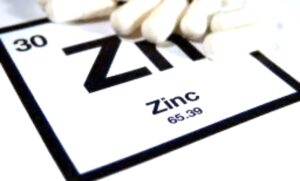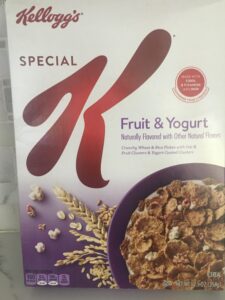Did you know that your diet should include important nutrients and food for vein health? During this COVID-19 outbreak, we’ve been hearing a lot more about the importance of Zinc in your diet. This is what we know: zinc is a trace element which your immune systems needs to function properly. In fact, zinc is considered a type 2 nutrient because it’s a necessary part of your body’s general metabolism (other type 2 nutrients include protein and magnesium.) So, if you have a zinc deficiency, you’ll be at a higher risk for infections, diseases and viruses like COVID-19.
But supporting immunity isn’t zinc’s only important job. In fact, this little element plays many roles in your body. And a little of it goes a long way: your recommended dietary allowance (RDA) for zinc is 8 milligrams (mg) a day for women and 11 mg a day for men.
It’s entirely possible to get your daily zinc dose from your diet (more on that shortly.) Otherwise, talk to your doctor about starting a zinc supplement.
Still waiting to be sold on zinc? Let’s take a closer look at two of its numerous function: supporting immunity and wound healing.

Without zinc, our body can’t activate its T lymphocytes (T cells). And we need those T cells for two jobs: controlling and regulating our body’s immune response, and attacking cells that are infected or even cancerous.
What does that all mean for you? If you don’t get enough zinc, your immune system just won’t work the way it should. In fact, a study published in the American Journal of Clinical Nutrition reveals, “zinc-deficient persons experience increased susceptibility to a variety of pathogens.”
Now, those pathogens range from severe infections to conditions like a common cold. Which is why, according to a study published in the Open Respiratory Medicine Journal, zinc supplementation could shorten your cold experience by as much as 40%. Plus, it could make your symptoms less severe while you’re still under the weather. It’s not so surprising, then, that zinc can also help your body heal leg ulcers, a common symptom of vein disease.
Before we explain why zinc can help heal your leg ulcers, let’s review why you might develop this kind of wound. When you have chronic vein problems, you may develop non-healing ulcers or open sores on your lower legs. Also called venous ulcers, they usually develop around your ankle, varying in size from very small to several inches in diameter.
What’s the connection between these two issues? Chronic vein disease causes a progressive inflammatory reaction in your body, and that damages your capillaries and lymphatic ducts. After that damage, fluid leaks into the tissues of your lower legs, causing swelling and depositing hemoglobin in your lower leg tissue.
But that’s not all—capillary damage also decreases your lower leg’s oxygen levels, which translates to poor wound healing and ulcers.
We treat venous ulcers with compression therapy and wound care, while also treating your underlying vein condition. And now we know that zinc could help speed up your healing. Why?
One of zinc’s jobs is to maintain your skin’s health. In fact, you may be more susceptible to leg ulcers if you have a zinc deficiency. As such, some studies suggest that applying zinc to your wounds could help speed healing, but further research is required before this becomes our primary treatment protocol.

Beans, animal proteins, nuts, fish and seafood are all good sources of zinc. You can also get zinc from whole grain cereals, and dairy products. Top choices for zinc include fortified cereals, Pacific raw oysters, canned baked beans, cooked green peas, yogurt, pecans, lean ground beef and roasted peanuts.
Luckily, you’ve got lots of tasty ways to get your recommended daily zinc intake from diet alone. If, however, you feel you may have a zinc insufficiency, you may consider supplementation. Zinc supplements come in capsule and tablet form.
Keep in mind, however, that too much zinc can also cause problems in your body. So talk to your doctor before adding any new supplements to your diet. And, if you’re dealing with a leg ulcer right now, don’t delay treatment—regardless of the COVID-19 outbreak, you must stick with your follow up ulcer appointments. Failure to do so could even result in amputation!
Now you've seen how zinc can help your veins--and COVID 19. But there are other important nutrients you should add to your diet, in order to boost circulation and protect your vascular system. Here are some of the top choices:
The family of B vitamins can do great things for your vascular health. If you have varicose veins, taking B6 can help them heal. Vitamin B12 improves blood flow, and B3 can lower cholesterol while boosting circulation.
Vitamin B6 can restore vein health, making it a good choice for varicose vein sufferers. Vitamins B6 and B12 promote healthy blood flow. Vitamin B3, or niacin, aids in blood circulation and lowering blood cholesterol.
What to eat: Brown rice, wheat, barley, turkey and tuna.
Vitamin C can preserve flexibility in your vein walls, and reduce arterial inflammation.
What to eat: berries, broccoli, spinach, potatoes, tomatoes, oranges, and lemons.
This nutrient for vein health can help you prevent blood clots! At the same time, deficiencies with this vitamin can lead to excessive bleeding, so it's important to watch your intake carefully. This vitamin can also keep blood from pooling, which will reduce your risk for varicose veins. (It may even help reduce the appearance of existing varicose veins by improving elasticity in your blood vessels, helping them snap back into shape, even if blood pools in them. Although simply taking this vitamin won't resolve your vein health concerns once they develop.) And, you need k2 vitamins to keep elastin from calcifying, which would further increase your varicose vein risk.
What to eat: parsley, mustard seeds, broccoli, Brussels sprouts, and pumpkin.
Your veins and arteries need this nutrient to stay relaxed and keep blood flowing freely. If your Vitamin D levels dip too low, your risk for deep vein thrombosis (DVT) rises dramatically.
What to eat: oily fish, red meat, liver, egg yolks, and fortified breakfast cereals.
While the previous nutrients can boost overall vein health, the following suggestions can improve your blood flow and prevent dangerous blood clots, including deep vein thrombosis (DVT.)
First, make sure to stay hydrated with plenty of fluids, since dehydration reduces blood flow. To stay safe, the American heart association suggests that women take in 91 oz of fluid daily (fluid from food is included,) And men should aim for 125 oz. (Score bonus points by including some red wine or grape juice in that mix, since research shows the polyphenols they contain can make your blood less prone to clotting.)
Now, try adding more garlic to your diet, since this flavorful staple seems to help break up clusters of blood platelets before they form clots. Finally, add leafy greens and olive oil, and cut back on sugar, saturated fats and highly processed foods, and you'll be well on your way to preventing DVT!
Need even more help preserving your vein and arterial health? That's what we're here for! Schedule an appointmentSchedule an appointmentSchedule an appointment with our Houston and Dallas area vein specialists today. We can get a better picture of your current risk factors, and help you with diet and lifestyle changes to treat any existing issues.

Scheduling
Please contact our dedicated specialists to schedule a consultation today.
2024 Texas Endovascular. All rights reserved. Website Design by Healthcare Success